Doctor of Philosophy [Ph.D] (Public Health, Epidemiology and Health Services Research)
Field of Study:
£36,000/Yr
Tuition Fees
| Year | 1st Year Fees |
|---|---|
| Tuition Fees | £36000 (GBP 36000) |
Previous Year Tuition Fees
| Year | 1st Year Fees |
|---|---|
| 2021 | £24300 (GBP 24300) |
Important Dates
No Deadline is available, students to enroll atleast 2 month prior the course starting date.
Research in the Institute of Health and Society (IHS) is organised into four themes and underpinned by four discipline groups. As a research student, you will be fully integrated in a theme or group. You will have a team of supervisors, including clinicians or policy makers from a range of health and social care settings. Current research interests, projects and publications are available from our staff profiles.
ThemesÊ
Applied epidemiology
The applied epidemiology theme contributes to the understanding, prevention and treatment of chronic non-communicable disease across the life course. Research areas include:
- maternal and perinatal health
- childhood cancer
- life course epidemiology
Decision making and organisation of care
Decision making and organisation of care brings together social and behavioural science, and clinical expertise to conduct applied health research. Research areas include:
- implementation/improvement science
- shared decision making/patient-centred care
- experience of health, illness and healthcare
Life-course, development and ageing
Life-course, development and ageing explores healthy ageing, from development in childhood and the consequences of disability, to the health and wellbeing of the oldest old (85 and over). Research areas include:
- ageing and health
- transitions in health and disability
- understanding child disability
- improving quality of life
- technologies and the environment
- cognitive impairment and dementia
Public health improvement
The public health improvement theme conducts applied health research with a focus on the development, evaluation and translation of health interventions. Research areas include:
- understanding and tackling health inequalities
- understanding and changing health related behaviours
- evaluation of public health policy
- public health nutrition
- prevention of alcohol misuse
Discipline groupsHealth economics
The Health Economics Group conducts research aimed at improving the allocation of scarce health and social care resources, tackling inequalities in access to care and health, applying and developing research to better measure the benefits of health and social care. Research areas include:
- evaluating benefits/quantifying preferences in for health and health care
- development and application of economic evaluation
- commissioning and priority setting in health care
- econometric applications in studies of health, with a focus on income and health inequalities
Health psychology
The Health Psychology Research Group focuses on behavioural and psychological processes in health and health care. The group's research includes work on methodology, theory and the development and evaluation of interventions, contributing to both scientific and practice agendas. Research areas include:
- causes of behaviour relevant to health and health care
- behavioural theory
- modifying behaviour, emotion and cognition
- complex behavioural interventions for health and health care
- knowledge translation in health care.
Medical sociology
The Medical Sociology Group is theoretically and methodologically broad ranging. The group applies different theoretical sociological approaches dependent upon the subject under research. Research areas include:
- individual patientsÕ and carersÕ experiences of health and health care
- evaluation of health care organisation and work
- implementation of health care technologies
Health technology evaluation
The Health Technology Evaluation Group conducts research into healthcare methods and interventions including:
- screening procedures
- drugs
- medical devices
- surgery
- therapy interventions
- behaviour change interventions
- organisation and delivery of health care
This is done through systematic reviews, rigorously designed clinical trials and process evaluations, multi-method feasibility studies and other high quality designs. Research areas include:
- feasibility of health technologies
- acceptability of health technologies
- efficacy and effectiveness of health technologies
- comparisons of health technologies
- health technology evaluation methods
Pharmacy
Our new School of Pharmacy has scientists and clinicians working together on all aspects of pharmaceutical sciences and clinical pharmacy.
We will be offering the following PhD projects:
- Drug Delivery Approaches for Improved Treatment of Disease
- Targeting Biosynthetic and Regulatory Pathways of Mycobacterium Tuberculosis as Novel Drug Targets
- Design, Synthesis and Target Identification of Novel Anti-Tubercular Agents
- Activity-Based Chemical Probes for the Profiling of Cytochrome P450s
- Development of Novel Silanediol HDAC Inhibitors for the Treatment of Cancer
Eligibility & Entry Requirement
Academic Eligibility:
- A 2:1 honours degree, or international equivalent, in a relevant subject.
- Newcastle also usually expect a master’s degree, or international equivalent, at merit or above. In addition to academic qualifications, they also value relevant work experience.
Indian Eligibility:
-
Typically Newcastle recognizes 60% from section 1 universities, 62% from section 2 universities and 65% from section 3 universities as compared to a 2.1 and 58% from section 1 universities, 60% from section 2 universities and 63% from section 3 universities as compared to a 2.2.
-
This can be in any of the following qualifications:
- Bachelor Degree
- Bachelor Pass or General degree in Arts, Science or Commerce
- Bachelor Special or Honours degree
- Bachelor degree in professional subjects
Along with the minimum eligibility requirements, tests required to study in the UK, international students hailing from non-English speaking countries need to prove English proficiency through IELTS/TOEFL/any equivalent test.
TOP Scholarships
| Scholarship name | Award amount | Eligibility |
|---|---|---|
| - | - | - |
| - | - | - |
| - | - | - |
Key Resources for Your Study Abroad Journey
Scholarship Grants & Financial Aids
| Name | Scholarship Per Student | Level of Study | Type | |
|---|---|---|---|---|
| Commonwealth Scholarship | Scholarship per studentVariable Amount | Level Of StudyDoctorate | TypeMerit-Based | |
| Robert S. McNamara Fellowship Program | Scholarship per student£ 25,000/Yr$25,000 | Level Of StudyDoctorate | TypeMerit-Based | |
| QS scholarships | Scholarship per studentVariable Amount | Level Of StudyBachelor | TypeMerit-Based |
Similar Colleges


Robert Gordon University


University of Aberdeen
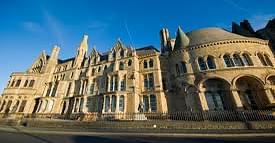

Aberystwyth University
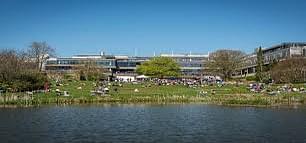

University of Bath


Cranfield University
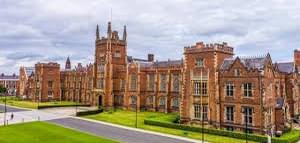

Queen's University Belfast


Ulster University
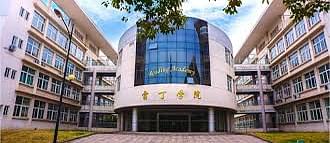

University of Reading
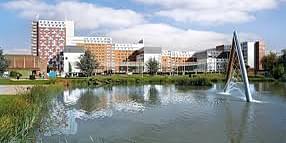


























Comments